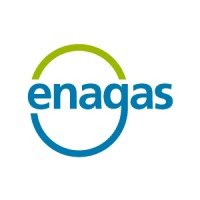Pakistan’s NEECA and ADB pre-feasibility study on hydrogen to provide insights
Levelized cost of electricity and energy security are essential aspects for decision-makers.

Pakistan firmly believes in a renewable energy future that aligns with the PM Imran Khan Clean Green Pakistan Movement (CGPM). Green hydrogen, an emerging fuel, has already been discussed in Pakistan alternative and renewable energy policy.
Dr Sardar Mohazzam, MD of the National Energy Efficiency & Conservation Authority (NEECA), told H2Bulletin, “the energy ministry is leading the energy portfolio for the transition.” The investment horizon is opening up though there was a slowdown due to COVID-19. But overall, investors confidence is coming back.
NEECA works under the Ministry of Energy (Power Division) and serves as a federal agency tasked with initiating and coordinating all energy conservation across various sectors in the economy.
Dr Sardar Mohazzam said that NEECA and Asian Development Bank has been conducting a pre-feasibly study into the deployment of renewable hydrogen energy in Pakistan, which is now almost near completion.
“The pre-feasibility study, which is almost about to complete, would provide us with a lot of insights, the potential for hydrogen in Pakistan, and the future direction. The team is also working on developing some of the prototypes or potential projects where we can move them forward and do some work on them,” he explained.
Pakistan has also conducted extensive policy work on hydrogen fuel in Pakistan, covering electric vehicles. We also looked into various aspects from the market development perspective, and we see an excellent market penetration potential. We have now to assess how to develop the market around it.
He said that the energy diversification of the energy mix is the key part of energy security. I think hydrogen or fuel cell technology will be a crucial energy source for us to look into it.
“Overall, the hydrogen market is in a very nascent stage, as far as we foresee in Pakistan. But it seems like there is a lot of potential, and the government and the political leadership has been very much interested in exploring it further,” he pointed out.
Currently, some types of technologies are new or maybe new for us and not for other countries. “However, the important factors for our decision-makers are the levelized cost of energy and energy security,” Dr Mohazzam stressed.
Pakistan has to focus more on green hydrogen than blue or grey as we have substantial renewable energy resources, especially, Baluchistan has enormous solar energy potential. Green hydrogen can make more sense when we examine it in the context of our spending on importing oil and gas. Green hydrogen can also be injected into our natural gas pipe network, which can help us in decarbonisation.
We should go to the best option first, which is green hydrogen. We should look into various aspects, including the cost, security, storage, supply chain, and integration. However, to pursue these projects, it is also important how much support advanced countries are willing to offer developing nations.
In Pakistan, the most significant reforms are being made in the energy sector, while more progress is on its way. Developing renewable energy projects has already been given very special lending rates and lucrative tariffs. However, the transition to green energy also requires awareness in public. Lack of awareness is currently a major barrier to achieving the clean energy target, and this will take time.
